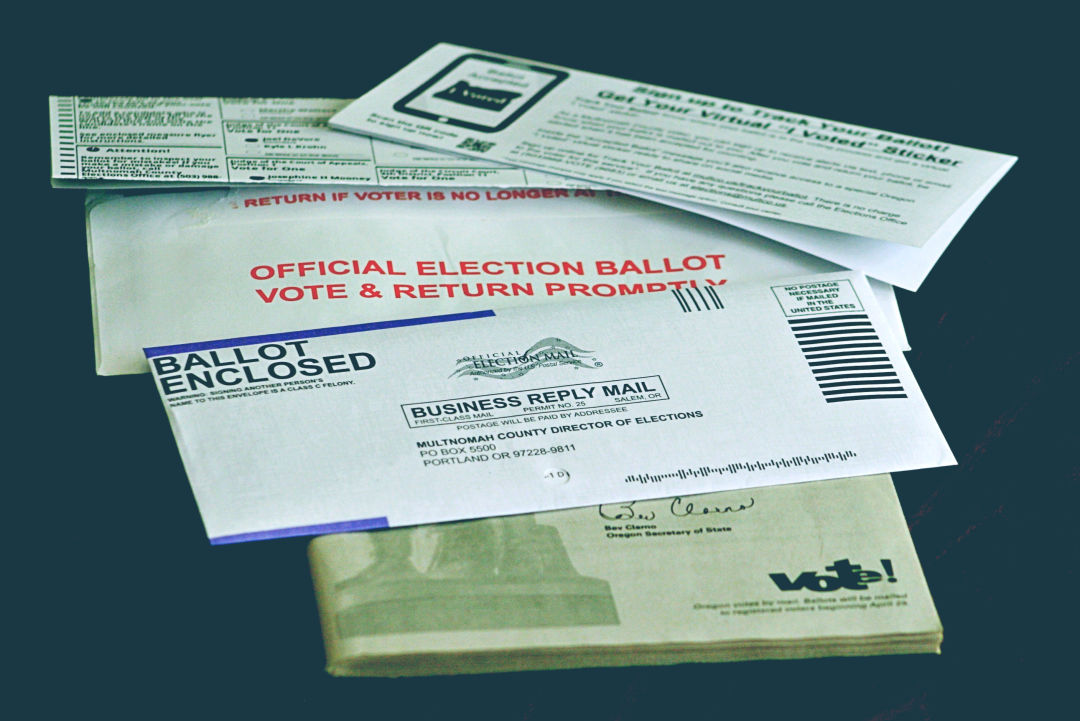The November Ballot Is Shorter Than Usual. Here's What's on It.

Image: Courtesy Robert P. Alvarez
The list of measures on the November ballot is shorter than usual. Here’s a quick look at some of what Portland-area voters will be asked to weigh in on.
Drug Decriminalization: One of the two citizen initiatives decriminalizes low-level possession of drugs including cocaine, heroin, and methamphetamine, and establishes an addiction treatment and recovery program funded by the state’s marijuana tax revenue. The other legalizes the therapeutic use of psilocybin mushrooms for treatment of depression and anxiety. If it passes, Oregon would be the first state to legalize that drug in some form.
Campaign Finance Reform: Oregon has long been known for having one of the nation’s least-restrictive rules on campaign financing, thanks to state laws that protect free speech. That could all change, should voters approve this legislative referral, which would allow state and local governments to limit campaign contributions and expenditures, beef up disclosures of same and require that ubiquitous TV political ads clearly identify the money behind them.
Cigarette Tax: The last time health policy advocates tried to put a cigarette tax on the Oregon ballot, Big Tobacco came in hot, spending millions of dollars on an ad campaign that ultimately led to the measure’s defeat. In 2020, with the presidential election, coronavirus, a cratering economy, and racial justice protests hogging the news cycles, it might be harder for the tobacco lobby to break through. The proposal would increase cigarette taxes from $1.33 per pack to $3.33 per pack and add stiff taxes onto the fast-growing e-cigarette market; revenues would go to the Oregon Health Authority for medical and health programs.
Universal Preschool: Tuition-free preschool would be available for all 3 and 4-year-olds in Multnomah County and preschool teachers and assistants would get a raise and more training under this measure that merged proposals from County Commissioner Jessica Vega Pederson and local activists who gathered signatures at Black Lives Matter demonstrations this summer. The measure raises taxes on the city's wealthiest, starting with individuals making more than $125,000 per year and households with incomes above $200,000 per year.
Parks and Libraries: The coronavirus pandemic was especially hard on Portland’s cherished parks system, with community pools closed for the summer and free movies and concerts off the table. Now, the Portland City Council is hoping to stabilize the struggling system with a dedicated five-year operations levy, which would cost the average Portland homeowner about $11 a month, or $130 a year. Meanwhile, a similar operating levy for the Multnomah County Library system is up for renewal this year.




